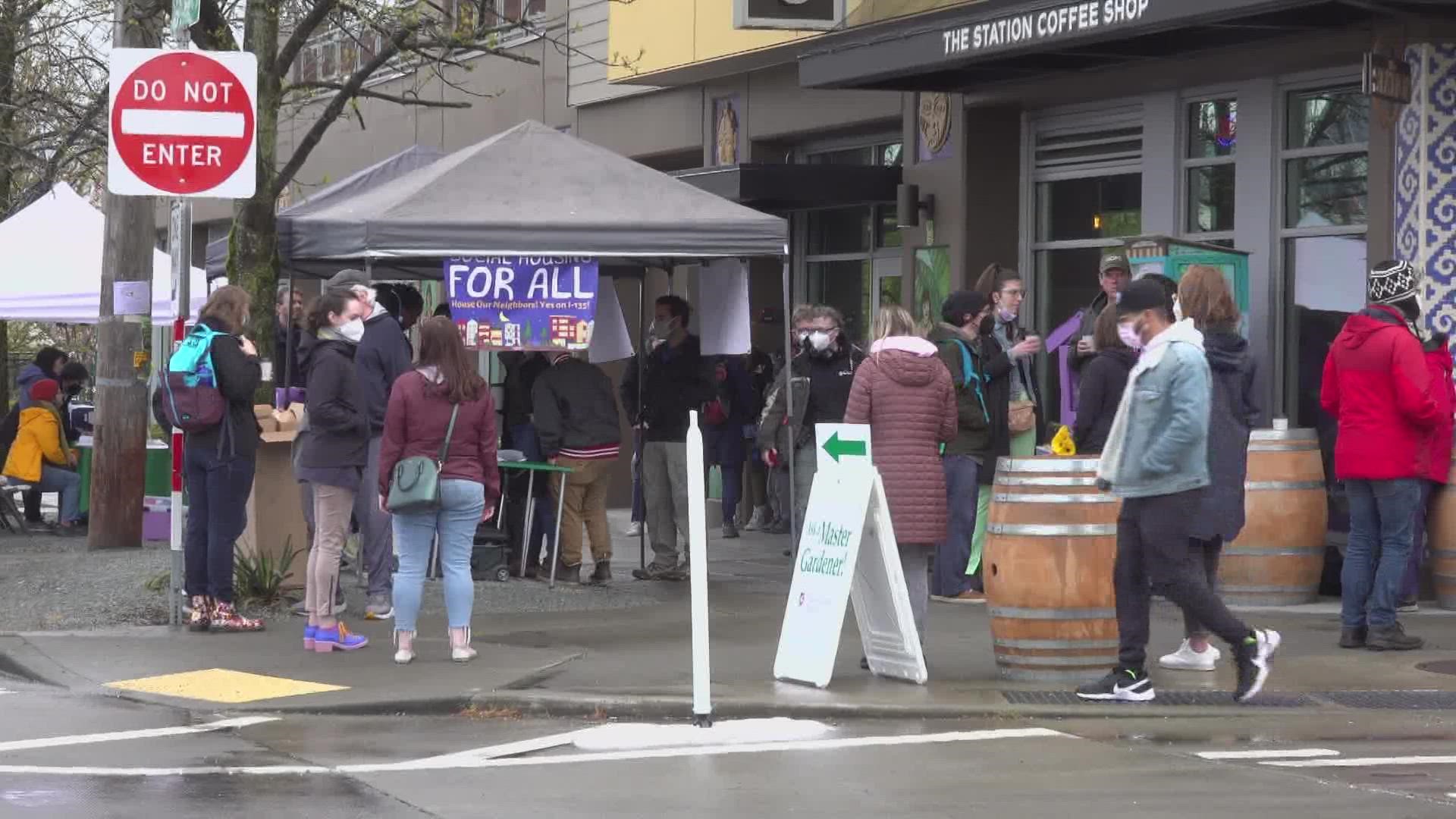SEATTLE — The House Our Neighbors coalition launched signature-gathering on a petition for Initiative 135 (I-135) in Seattle's Beacon Hill neighborhood Saturday morning.
If passed, the proposed ballot measure would create a "Seattle Social Housing Developer" to obtain and operate publicly-owned, permanently affordable housing.
"While we have strong affordable housing mechanisms already in the city of Seattle, we know that they're not going to meet the scale of need," said Tiffani McCoy, campaign co-chair of I-135 and advocacy director at Real Change. "Not because there's no desire, just because most of them are ultimately financed through the federal government, and there are very real limitations on that."
McCoy said they want to work in harmony with current non-profit partners and expand the availability of housing to include those making 0-120% of the area median income.
"Every year we're not addressing the affordability crisis in our city is another year more of our neighbors are pushed into homelessness," said McCoy. "That's an irrefutable fact. And it's another year when Black, brown and low-income communities are pushed out of the city, having to travel 30, 40, 50 minutes both ways to serve folks that are able to have the privilege to live in this city."
The "developer" would be a board made up of renters and professionals in fields such as green development and urban planning.
"To have an opportunity for renters to dictate the conditions of their homes and determine how those homes are administrated, who's building them, and are we doing that in a way that is in alignment with what we know about wages, protecting workers and having quality, deeply affordable housing for everyone," said I-135 organizer Nikkita Oliver.
Plans for funding the proposal, along with more information about the specifics, can be found here.
The Housing Development Consortium released a statement on Friday opposing the measure, arguing it "distracts funds and energy away from what our community should be focusing on – scaling up affordable housing for low-income people."
Campaigners said they believe I-135 plays a different role.
"As a renter, most of us don't have control over the conditions of the housing we live in, what rents look like, how buildings are built," said Oliver. "Are they built by organized labor? Are they built by union workers? This particular initiative has the promise of renter-led housing which I think is powerful. To have an opportunity for renters to dictate the conditions of their homes and determine how those homes are administrated, who's building them, and are we doing that in a way that is in alignment with what we know about wages, protecting workers and having quality, deeply affordable housing for everyone."

